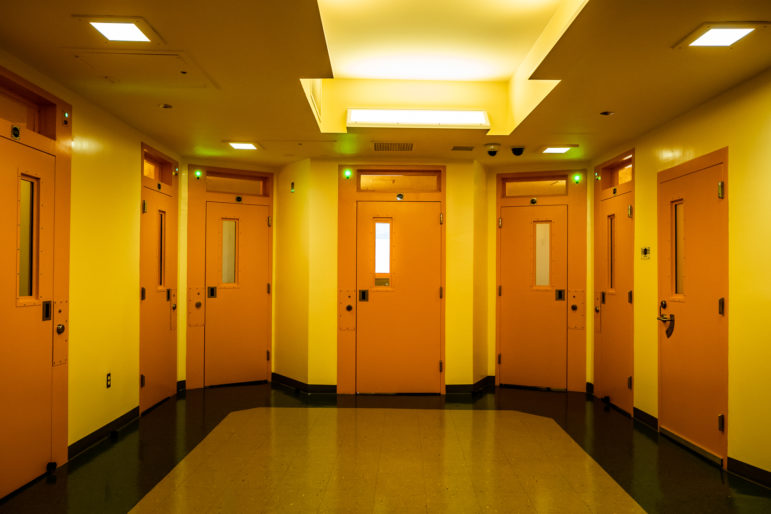“I know firsthand the toll that adult prosecution takes on teenagers. When I was 17 years old, I was arrested, charged, and sentenced as an adult, and ultimately spent 10 years in adult prisons. When I was released, I was fortunate to have family support and a place to call home. So many young people lose that support if they had it in the first place.”

Adi Talwar
Inside the Crossroads Juvenile Center, in Brownsville, Brooklyn, one of the facilities where juveniles were transferred from city jails after the Raise the Age law was passed in 2018.It was a great day when New York finally ended the practice of prosecuting all sixteen and seventeen year olds as adults. That moment was long overdue, as New York was the second-to-last state in the country to “raise the age.”
But now there is a growing chorus to roll back Raise the Age for purely political reasons. This growing chorus is producing a sound-bite response to complex issues and will cause tremendous harm to yet another generation of young people of color. We cannot afford to play politics with young people’s lives.
I know firsthand the toll that adult prosecution takes on teenagers. When I was 17 years old, I was arrested, charged, and sentenced as an adult, and ultimately spent 10 years in adult prisons. When I was released, I was fortunate to have family support and a place to call home. So many young people lose that support if they had it in the first place. Without it, they face nearly insurmountable barriers to moving forward as adults.
Despite what some elected officials and media outlets claim, the Raise the Age law, which requires that we treat young people like young people, has simply not produced a rise in gun violence. In fact, rates of gun violence in New York City were higher in the 1990s and early 2000s, well before Raise the Age was passed.
And there has been a national uptick in gun violence in the wake of the pandemic. This is not a problem that is unique to New York City, and we simply cannot incarcerate our way out of it. It did not work before and it simply will not work now. It is widely recognized that prosecuting young people as adults undermines public safety rather than enhancing it, by making it more likely that they will continue to cycle through the criminal legal system.
Gutting Raise the Age would mean spending our taxpayer dollars to lock children in cages as they finish their teen years and become adults. It would mean that more children would have permanent criminal records and face barriers to finding employment and jobs as future artists, tech entrepreneurs, small business owners, teachers, public servants, and more.
We are just beginning to unpack the trauma visited upon young people by the pandemic, particularly in New York City communities of color that were among those hardest hit by COVID-19. Young people got sick. They lost family members and friends and neighbors, and watched their communities suffer as businesses closed, people lost jobs, and the costs of necessities strained tight budgets. They were confined to their homes—if they had homes—and denied the chance to attend school, not to mention arts, sports, and other programs key to their development. They lost access to the people and supports that kept them well and safe.
Instead of rolling back Raise the Age, we should invest in the kinds of programs that we know keep young people out of harm’s way or from harming others, as Mayor Eric Adams has recognized, like credible messenger mentors, education, and meaningful job training and year-round employment opportunities.
Now is not the time to give up on our young people, and return to failed policies, but instead to redouble our commitment to their well-being—because they are our future.
Rob DeLeon is the senior vice president at the Fortune Society.









One thought on “Opinion: We Cannot Afford to Play Politics With Young People’s Lives”
What should be done is incarcerate the parents along with their child and divide the sentence in half base on the crime. This will get the parents’ of all colors attention that their responsibility on how the raise their child will be treated in kind.